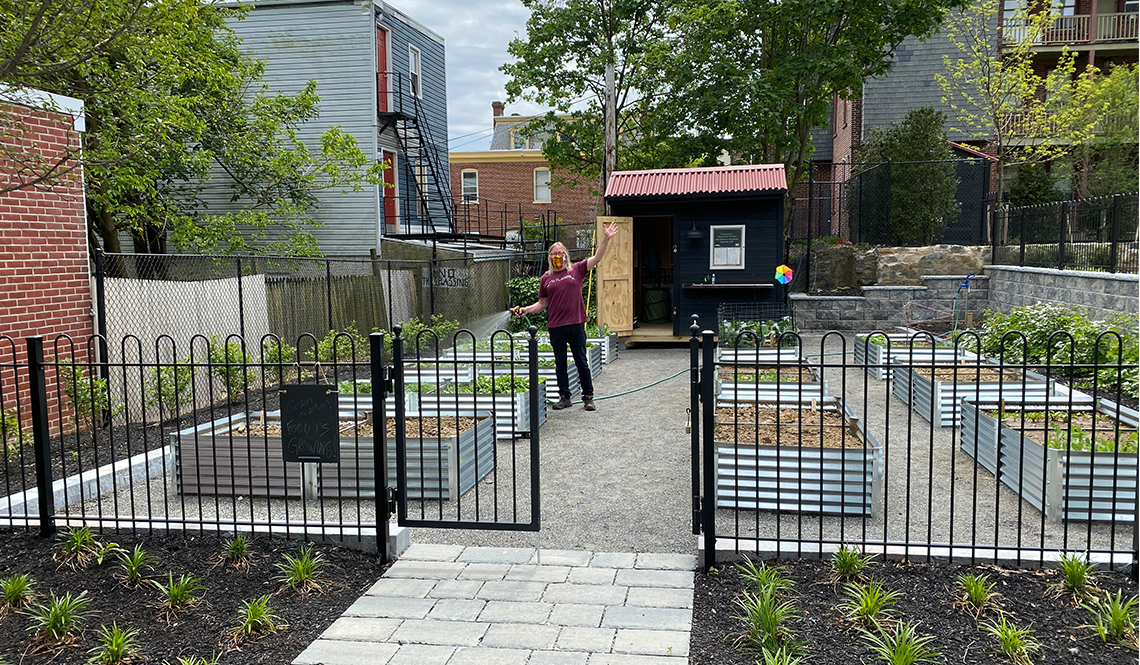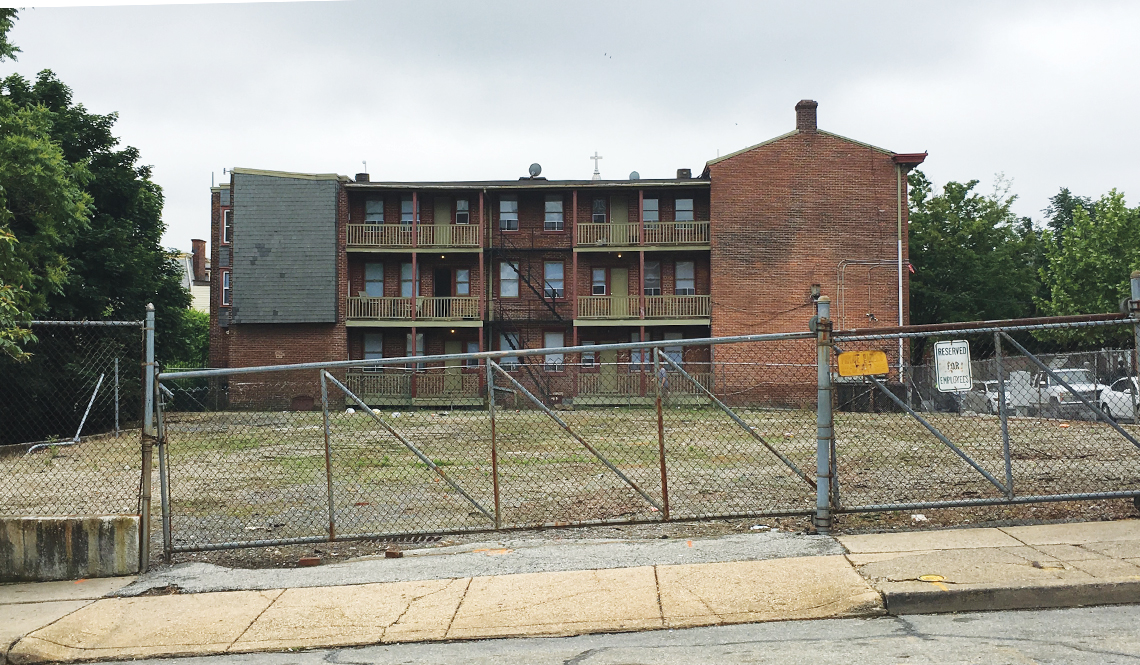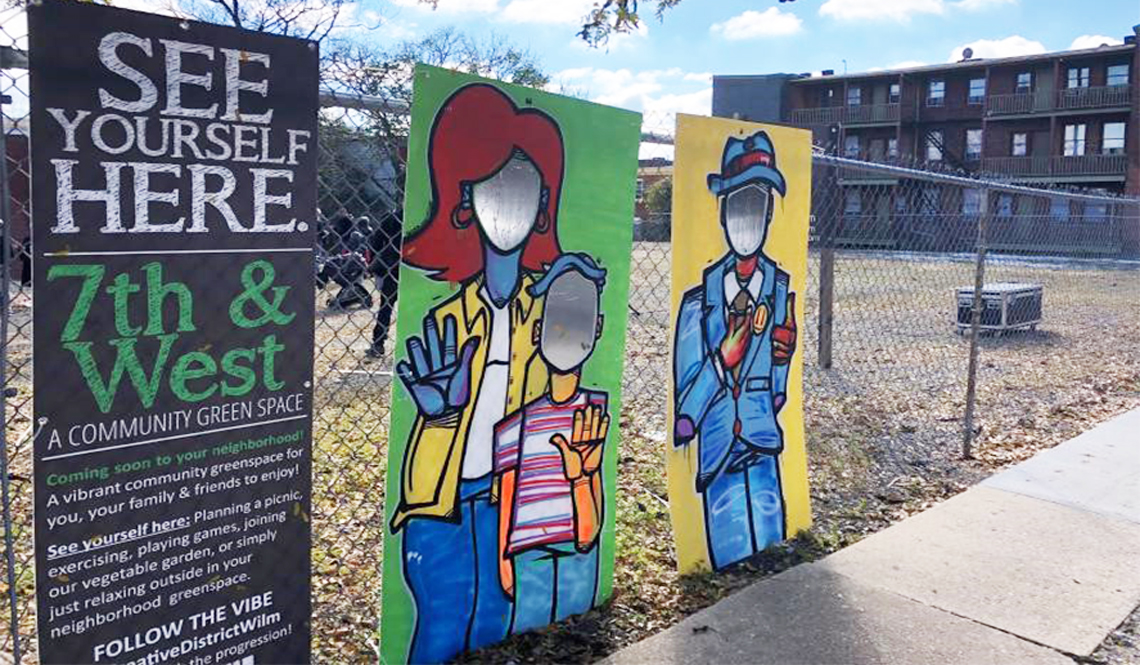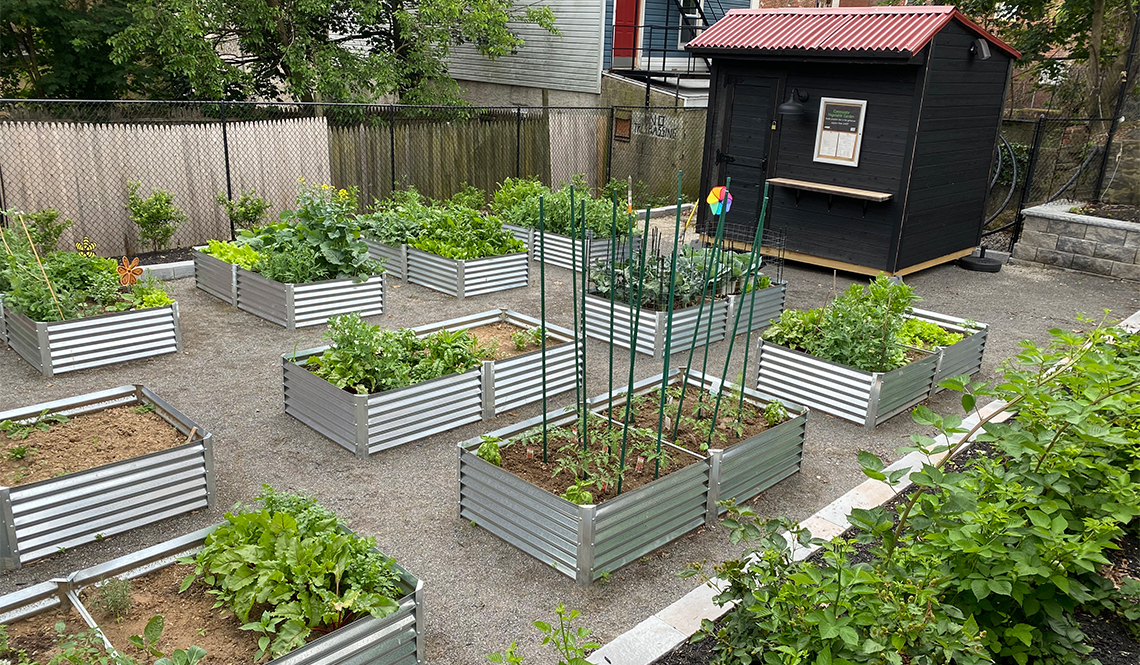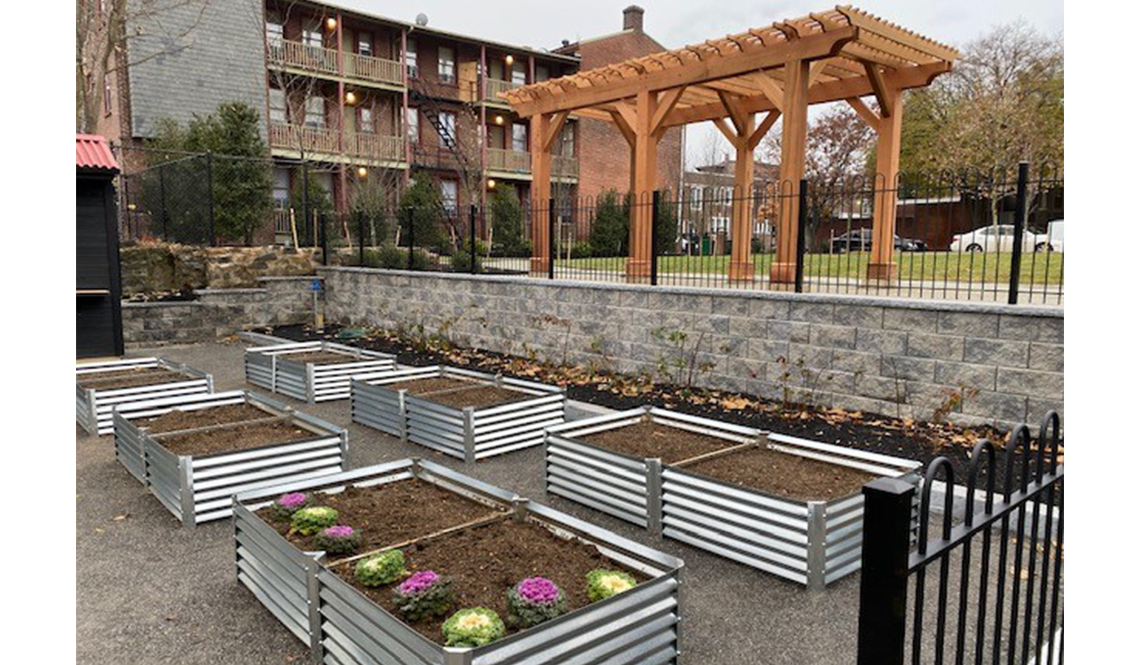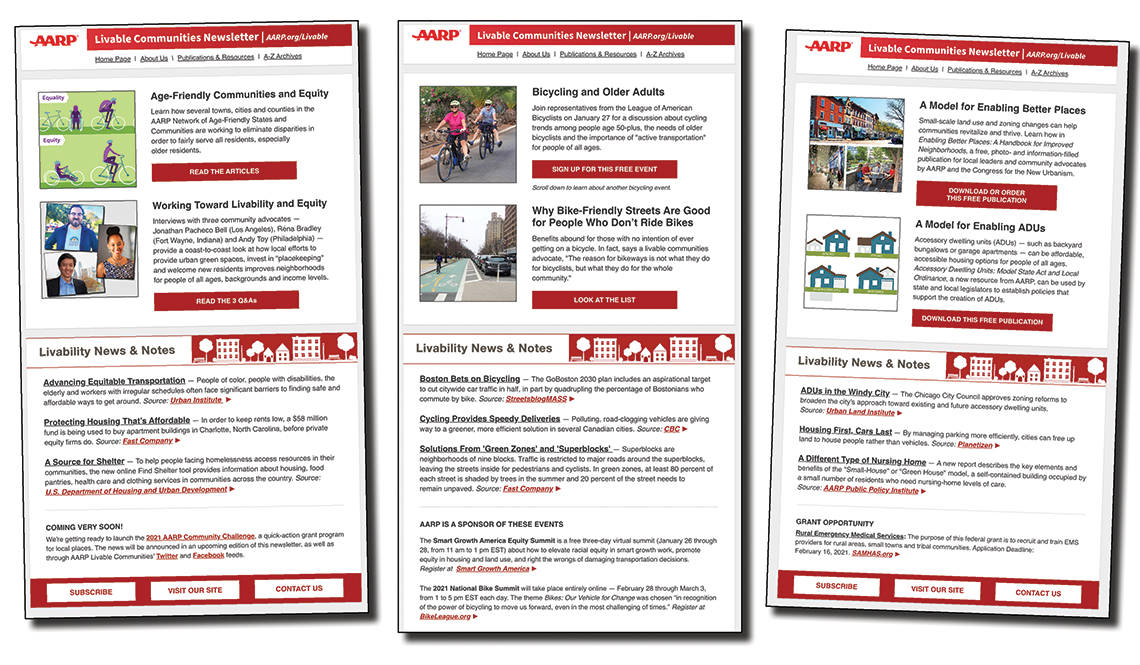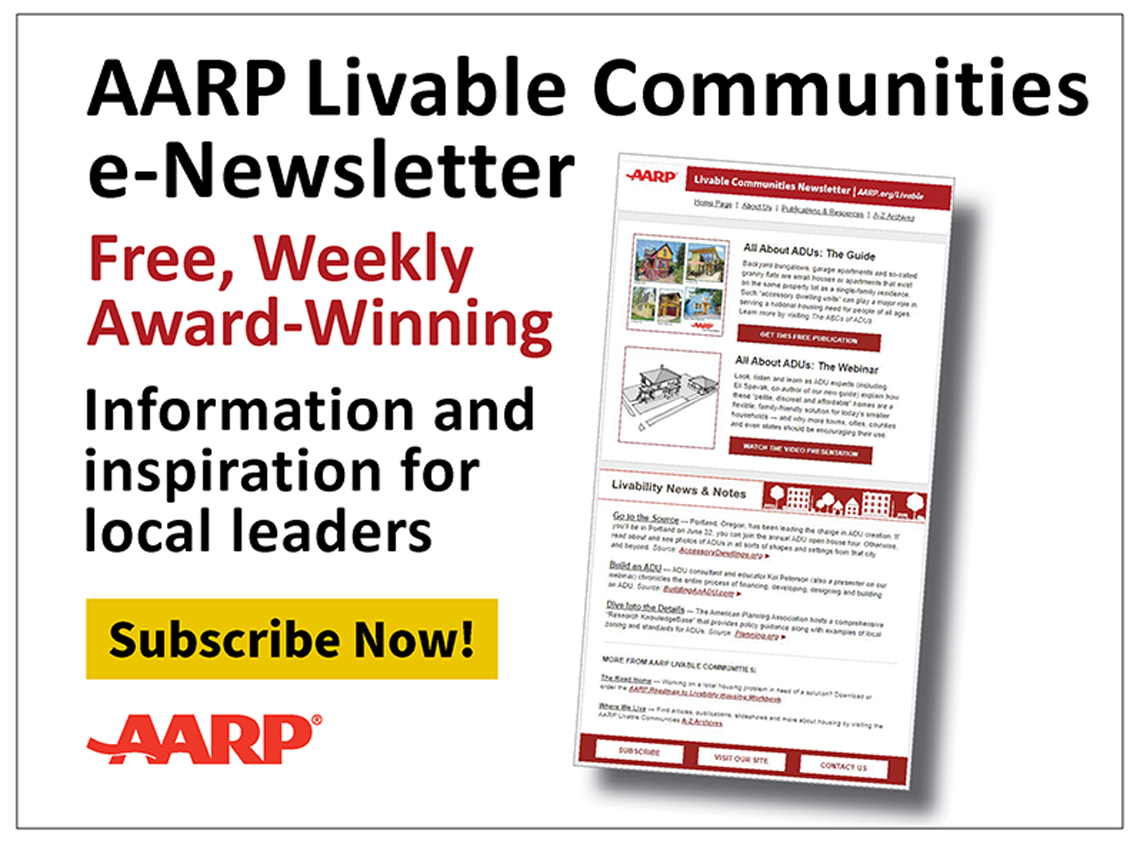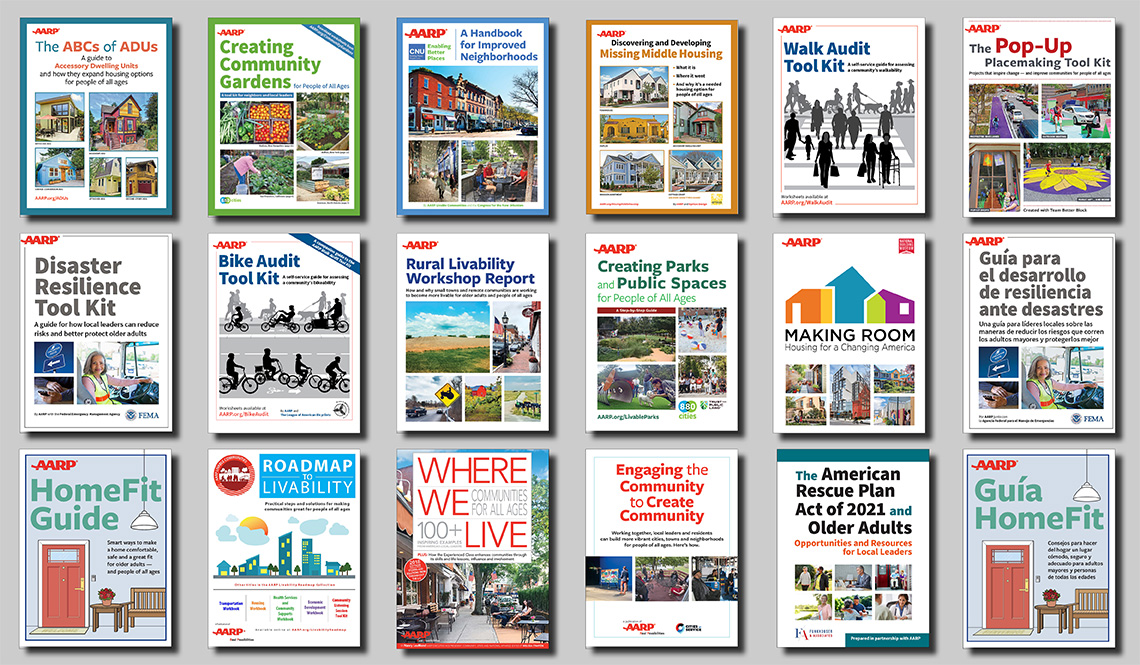The Key Ingredient for Creating a New Public Space? Community Engagement
A look at the lasting impact of a 2019 AARP Community Challenge project in Wilmington, Delaware
“The highlight of the project has been the positive community reaction to the park and garden. The green space has become a staple in the community, and the neighbors have embraced the opportunities the garden presents.”
— Laura Semmelroth
“Vacant” and “rubble-strewn” were all words used to describe the empty lots in the West Center City neighborhood of downtown Wilmington, Delaware. Although the neighborhood had experienced disinvestment for decades, it is home to an engaged community of residents and business owners.
Building on years of community input and involvement, the Wilmington Alliance (then known as the Wilmington Renaissance Corporation) created a plan to turn the vacant lots into a vibrant public green space.
In 2015, the organization received a National Endowment for the Arts grant to plan four public spaces and host community engagement sessions about what to put in them. Among the targeted spaces was the corner of 7th and West streets — a 17,000-square-foot, nine-parcel brownfield location requiring soil removal, remediation, landscaping and more.
The Project: 7th & West — A Community Green Space
“We asked residents what type of programming they were interested in to ensure there was local buy-in,” explains Laura Semmelroth, the Wilmington Alliance’s director of creative placemaking.
Residents said they wanted a community vegetable garden. One-third of the space is now used as a garden. The rest — which features a patio, pergola and landscaping — is an open area that can be used for gatherings.
An AARP Community Challenge grant financed a storage shed, 11 raised-bed gardens and two beds for blueberry and raspberry bushes. The shed has lighting, a community bulletin board and a countertop workspace for gardeners. The garden opened to the public in November 2019.
The Wilmington Alliance recruited a “farmer-in-residence” to engage the community and support the garden. (The farmer lives in the neighborhood, so has existing relationships with residents and local businesses.)
The Results: New Programming and Support During COVID-19
“The farmer-in-residence has been crucial to the space’s success and has really made the garden work,” says Semmelroth. Once the renovation was complete, residents signed up to garden the beds. Those new to gardening could learn from the farmer and the University of Delaware’s Cooperative Extension program.
The 7th & West park is a welcoming, green and healthful public space where the community can enjoy both planned events and spur-of-the-moment activities, giving the area, Semmelroth notes, “the gathering spot it has long craved. The increase in livability has had a dramatic effect on residents, especially older adults who might have been socially isolated due to a fear of crime.”
Semmelroth says the AARP grant helped the garden receive grants from other sources. One such grant funded the park’s pergola and helped the alliance acquire the funding it needed to complete the entire $1.3 million project.
"The highlight of the project has been the positive community reaction to the park and garden," says Semmelroth. "The green space has become a staple in the community, and the neighbors have embraced the opportunities the garden presents."
The 7th & West park is the largest programmed green space in the neighborhood. It's also a welcoming, green and healthful public space where the community can enjoy both planned events and spur-of-the-moment activities, giving the area, Semelroth notes, "the gathering spot it has long craved." She adds, "The increase in livability can have a dramatic effect on residents, such as older adults, who might have been socially isolated due to a fear of crime.”
The garden and its adjacent park space saw decreased usage during stay-at-home orders stemming from the COVID-19 pandemic. However, residents did use the garden during the spring and summer, and the food harvested from the garden was shared with the neighborhood.
Semmelroth says the AARP Community Challenge grant helped the effort qualify and receive grants from other sources. One such grant funded the park's pergola and helped the alliance aquire additional funding to complete the entire $1.3 million project.
Advice for Replicating the Project
First and foremost, change has to come from residents, and building trust is critical, says Semmelroth. “If I hadn’t walked and talked this neighborhood for years, we would have never gotten the input and buy-in from residents.” She notes that the garden and programming were requested by people who live in the neighborhood.
Partnerships with local organizations, as well as the city and state governments, also helped make the park possible. “The city has been a great and supportive partner, and the state was a huge partner, because we had to redevelop a brownfield,” she says.
The best part of the project for other communities to replicate, Semmelroth says, is the farmer-in-residence. “The farmer is the cheerleader and guide for first-time gardeners. The farmer teaches people how to plant, when to harvest, what to cook — and the farmer can console the new gardeners when things don’t quite grow as planned.”
Written by Mike Watson, reported by Evey Owen
Published in October 2020 based on the project’s after-action reports, media coverage and an interview conducted in July 2020.
- Read more about the AARP Community Challenge
- Learn about the AARP Network of Age-Friendly States and Communities
Stay Informed
The weekly, award-winning AARP Livable Communities e-Newsletter provides local leaders with information and inspiration for making their town, city or neighborhood more livable for older adults and people of all ages. Subscribe today!
AARP.org/Livable
Enter a topic, name, place, etc.

